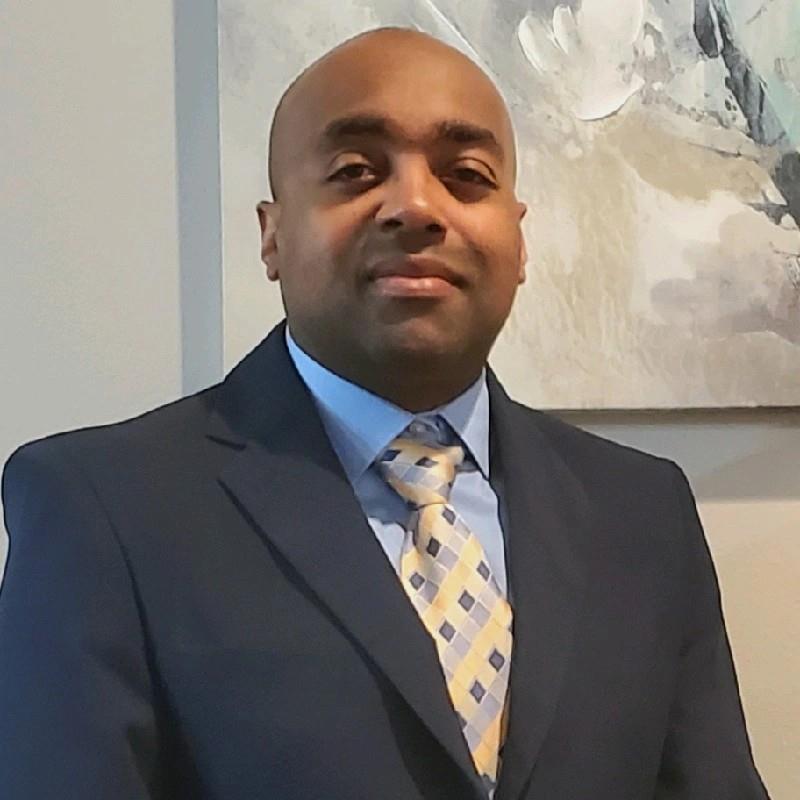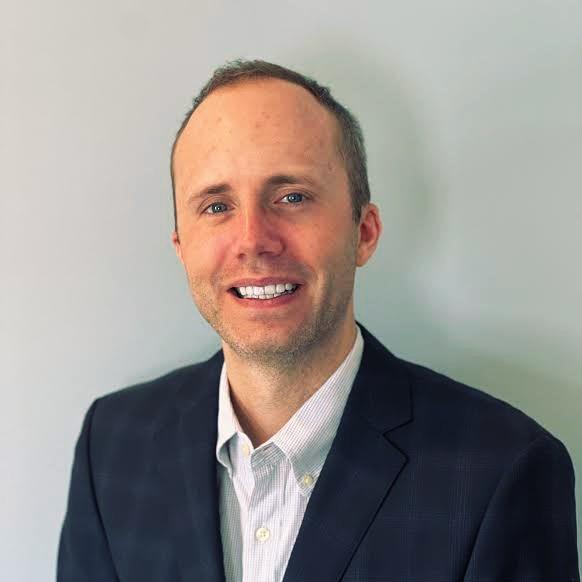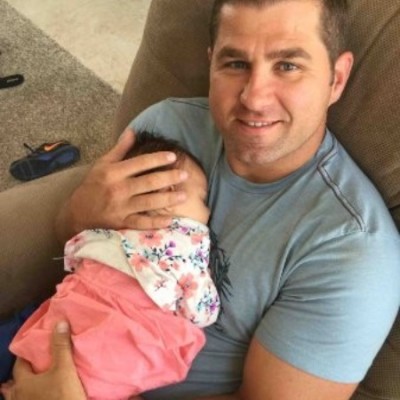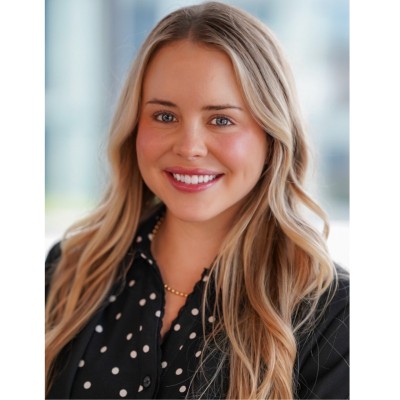They say luck is what happens when preparation meets opportunities. Daniel Tighe’s enterprising story is a great example of how one can thrive under these circumstances. In this episode, he joins Samuel Adeyinka to share with us how he has been able to generate more business and become more successful in spine distributorship. He tells his entrepreneurial origin, shedding light on how he tackled the opportunities that came his way and approached marketing. In particular, Daniel highlights the importance of being motivated to add value. From treating doctors and providers as partners to viewing your role as an extension to help others in that partnership, he shows how far one can go in the industry when you know how to communicate. Find out more about Daniel’s story and how he has enterprise himself and became the envy of direct reps at the top of the game.
The CE experience for this Podcast is powered by CMEfy – click here to reflect and earn credits: https://earnc.me/h7etbw
—
Watch the episode here
Listen to the podcast here
Enterprising Yourself At The Top Of The Spine Distributorship Game With Daniel Tighe
In this episode, we have with us another special guest, and he goes by the name of Daniel Tighe. Daniel is someone who takes enterprising to an entirely new level. He’s a spine distributor and has carved himself quite the business in his area. When you learn about the ways he’s been able to generate more business and be a more successful spine distributorship, it will do nothing but amaze you. I am not going to give any of that away. I’m going to save it for the interview. As always, thank you for the show. I hope you enjoy this interview.
—
Daniel, how are we doing?
I’m doing good. I’m closing out the week on a Friday. Those are the things.
Why don’t you tell everybody who you are and what you do?
I’m Dan Tighe. I have been fortunate to work with developing reps, generating sales, and making connections with surgeons. I started from the bottom. I worked my way up through distributorship rankings. I have done every aspect of the job. One of the things I have found that’s cool is coaching and helping other people get into the industry as well.
I know you a little bit now, and you are being modest. The way you have done things in this industry is fascinating, but I won’t spoil it. Take us back to college. Was it med sales from the beginning? Was it med sales when you were a younger man and you said, “I always want to do that?” Where were you thinking your senior year will be in college?
It was interesting. As a kid, I was interviewing. We had a similar story, and it was relatable. When I was thirteen, my dad ended up having a herniated disc in his back. My friend’s dad is now a retired neurosurgeon back home in Missouri. He did the procedure on my dad. That got me interested. I saw my dad at a 90-degree angle walking with a crutch, going into surgery, and coming out and walking again and saying, “All my pain is gone.” That’s a classic herniated disc L5-S1 that we see all the time. Back then, it was like, “That’s cool.” Also, I was like, “I probably don’t want to be a doctor because they have to go to school for a long time.”
I was an athlete. I played college basketball and soccer all through high school. I knew that I wasn’t going to make the NBA, but it was also something that was like, “This is a career builder into this medical sales profession.” In addition to that, a couple of years after my dad’s surgery, my uncle got into medical sales for cardiovascular shunts. Were they rich? No. Were they doing well and comfortable? Yes. Was he able to pay off student loans and all that stuff? Yes. That was something I saw that I can help people. I want to help people in this spine area. Since I was thirteen years old, this is what I wanted to do.
You were built for this. Coming out of college then, you already have places lined up that you knew you wanted to go work.
I have no clue how to do that. What was your experience like? What medical sales stuff did you do before you started the schooling and the teaching that you do?
My track when I graduated, I did want to be a doctor, and many people say that ends up in medical sales. I was working at a lab, and I was a lab tech. I was shadowing doctors. I was in a BioMed program, it wasn’t clicking. I’m not sold on this. Maybe or maybe not. The scientist at the time that we were working for at the lab, we were working on a diuretic.
I started asking him, “What are some other fields that you can take this biomedical education to?” He’s like, “You’d be a perfect fit for pharmaceutical sales or medical device sales. You need to look into that.” I did. I looked into capital equipment, pharma position, and one more position. I got the pharma position with GSK. That was the kickoff to my entire career.
I did extremely well in my first year. In my second year, I took it to biotech, and then I started learning about coaching. I had a personal setback when I was older. I learned about this whole coaching dynamic and took it. I took a three-month program. It put me back on my feet. I was performing again. I was doing everything right again. I said, “At some point, I’m going to leave this space and I’m going to go coach on my own,” and then the rest of history. I discovered it through someone else, but you knew from a very young age. What helped you get your first position coming out of your senior year in college?
This is 2007. I feel lots has changed to where companies are more willing to take on some younger talent. Back then, I was the youngest person. By the time I got into it, which I graduated in ‘22, I got my first job in medical sales by 26.
Were you gunning for it during that four-year time period? Were you applying and trying? What were you doing?
Here’s a story we didn’t talk about on the pre-call, but I had something in my personal life that I needed to stay in the state of Iowa where I went to school for a while. I ended up taking it the first job out of school which was a call center for an annuities company. We talked about when you go out and you get a job, and it was a good job, had benefits, was a cool facility, and was a big company in Cedar Rapids, Iowa, which is the insurance capital of the world that no one knows about. It was all the companies there.
It was like, “I’m going to go into this corporate life and get this first job.” I had a lot of people. The personal stuff that was going on close the door on what I wanted to do for a while, which was the medical sales stuff. There was a girlfriend at the time, and her dad was saying like, “You can’t do that. That’s not going to be the right path for you.”
He was a salesperson for industrial equipment, but he said that medical sales, the people who knew that did that said it was too hard. It was a grind. I took this first role and learned valuable lessons that I call on now that I didn’t think I was learning at the time. I moved back to Kansas City. At this point, the door opened back up to whatever I wanted to do.
I ended up getting a few pharmaceutical interviews at that time. Like a lot of people, they don’t quite know pharmaceutical or medical sales. My uncle had some guidance for me in that, but I was trying to get my foot in the door. I would take whatever interview I could. The thing they went back to was sales experience and playing college sports. I worked in the summer times, but it wasn’t like I could do internships during school. I was still training the whole time, living at the campus for the summers even. I didn’t have that. I kept getting to that last interview and not getting it because there was someone else that had that extra experience that I didn’t have.
You know so much now. You are a seasoned vet in this space now. We work with clients all the time who don’t have that sales experience, but we are able to help them communicate the value to the hiring managers to get them positions. Looking back now and you were in the same position, without that sales experience, you now know understand what to communicate and be able to get those jobs you couldn’t get back then.
I look at some of the resources that are out there for younger people that are interested in this profession. I knew about it at a young age. I knew other people in my college in my class that was like, “That’s something I want to look at doing,” but this wasn’t this pathway. You had to build it over a course of years. That was your grad school.
Now with programs that you guys offer through the development that program that people can get through your team, people can skip a lot of those steps. You are so spoiled if you are trying to get into this now because there’s competition in this space for you to reach that next level. I feel you are going for your accreditation and you will probably have that pretty soon. Now there’s even this extra major or degree that you can get to put you in a good place. We didn’t have that.
Through a variety of jobs leading to this and working for a neurosurgery pharmaceutical company in an inbound call center, eventually, I got to a group called CrewAthletics.com that helped me. They put a value on athletic experience for things that you didn’t have. They were also good coaches, but it wasn’t specific to the medical device. It was anything, like if you are an engineer or whatever. They were a typical recruiting firm. They guided me. I had one job that was going to make $125,000 a year. You could win a Mercedes lease for a year, and I knew people who had that. I played basketball at my local gym where it was an Enterprise Rent-A-Car, and it was $25,000 a year.
I had known Enterprise and paycheck ADP. Those are good sales roles. Enterprise was good. They kept all these metrics that you could pull back on when you went for interviews and things. I rented a car at the Kansas City airport to a guy who had a spine distributorship in Arizona. A little bit more detail than I told you was the guy to whom I rented the car initially was not the guy who hired me.
As you get into this, there are distributors and manufacturers. For the manufacturer, you will have manager roles that cover several states. The guy who rented the car to me was the manager for one of the companies that my company now sells. He rented the car from me. We got to talking. We would get hit on or pitched by a lot of different medical device companies.
For some reason, this guy and I clicked. I rented him the car. He leaves like anyone else. It seems okay with the guy. We had a good interaction. When he comes back to drop the car off, I happened to be, which is random on this return lane, checking the car in, and he was hauling to turn this car in. I go, “Lance what’s going on?” He’s like, “I got these totes in the back of the car.” These are not actual devices or medical equipment. What they are is these big containers that we ship everything in. They are plastic containers, but they are expensive and have fancy padding in them. He said, “I need to get these down to Shawnee Mission Kansas,” and we are way up north in Kansas City. It’s about an hour away.
I told the guy like, “That’s on my way home. I can throw these in my car and drop them off for you.” I did that. I threw them in my car, and it wasn’t on my way home. I lived an hour the other way, but he texts me and says, “There’s another guy flying out next week. You are going to meet with him, and I think he’s going to want to hire you.” We will talk about this again, but preparedness meets luck and opportunities. You got to be ready whenever anything comes up.
[bctt tweet=”Luck is when preparedness meets opportunities. You have to be ready whenever anything comes up.” via=”no”]
Let’s fast forward to your role out there in Arizona. Give us some of those ways that you grew your territory. This is stuff that was exciting to hear. I want you to share it with everyone.
I feel that I work hard. I’m around doctors who work hard. It was tons of hours that they put in. Lots of times, we are there at the surgery and are involved in it to some degree, but they are doing it physically. These things are not easy. They are pretty physically demanding skills. I had a doctor in Flagstaff who gave me a chance. It was with a device that was pretty unique that came out. It was a motion-preserving spine implant. I thought to myself, “He likes it. I’m going to show extreme loyalty to this guy. I’m going to do referral marketing for him.” At that time, there wasn’t a lot of medical device marketing online.
What year was this?
2012. I would drive all over Northern Arizona. It’s spread out not to meet with surgeons who are going to put my product in but to meet with referral doctors who were going to learn about this new technology that if you are a patient and you go to a doctor and they don’t do a certain device, that doctor might not educate you on it.
They have that choice and training on what they choose to do, but my goal was to let people know this is out there. There was one guy that was doing it at that time. If there were more, I would have told them this doctor or this doctor. At this point, it was easy because it was one person doing it. It was like, “I need to get as many patients that have this condition to him, and he will give it as an option.” If they go to some other doctor, I already know those doctors aren’t going to tell this person about this.
There was level one data, it was well studied, it was unique, and people were scared of having the infusion, and the thing worked. That was my first experience with marketing. I was doing what I could to try and control the sales I was getting. You can’t go to a doctor’s office 80 times in a month. You are going to have managers and people that are going to be trying to push you. There is something I read called overcoaching. It was random acts of coaching. I’m trying to think who posted on LinkedIn. You got to rely on your intuition when you have this relationship when is the timing right to show a doctor something and when it is time to pull back.
Even though with us, we sell to maybe 20 or 30 companies, they have to trust in me that I know when that time is right. I’m here. I’m in the room with the doctor. We have had conversations about your device, but you have to trust me. I’m not going to set up meetings because I got this company or this company wanting to do the same thing.
This is something for reps once they get into the industry. You have to use some of your discretion if you are in that phase where you are at your first job and have a manager who’s harping on you. You have to do what they want you to do, but if you are with a good coach that I was fortunate to have, they would understand the background and situation and not push me too hard to do something that was going to rupture the relationship. That was the first type of marketing stuff I did that was bare bones, grassroots, and knock-on doors. In pharmaceuticals, did you have that going on?
To do referral marketing? Not really. One story that I love that you shared with me is when you talked about calling the news station. That was a bold move. In pharma and biotech, I couldn’t even see how that would fly, but in medical devices or the people that we have coached, something that could work, but I want you to tell the story. What was going on there, and what happened?
It was a new doctor that I had started working with. I’m always looking for ways to add value. Value can be different for every single doctor. I want to back up on something because I want to start first with it’s not this numbers game in this business. There’s a connection you need to make with your doctor in a medical device where we are separated from the patients a lot.

If you work for Abbott or Boston Scientific where they do dorsal column stimulators, those reps are pretty connected. They are taking phone calls from patients directly a lot. We show up to surgery, use a device that we have talked to a doctor about that we think is going to work, and make the best form of the decision in discussing that with them.
They trust the information we are giving them as well as do their research and make that real decision on if it’s going to be used. We show up. We bring the equipment, we host up around, it’s busy, and it’s a go. The case gets done. If you are at a busy institution, it can seem like a machine. It’s always important to try and get into the clinic with the doctors if they will let you. Some will and some won’t, and one makes that connection to where you see a person in the clinic with the doctor. They choose to use something maybe you sell or someone else sells. Maybe it’s a procedure that they don’t need anything that we sell and then go to the clinic when that person comes back.
Even residents and fellowships don’t get a lot of time doing that. I always try and do that so that it keeps it in mind. It’s not like we are there. We know what a goal is, but it’s hard. You can lose it a little bit. If it becomes this machine of business. That’s the first thing I want to say. We will then go to the second part. What I talked about is an empathetic value that you need to be adding to this situation of understanding it. Like the overall picture, it’s the situation that your doctor is in. In spine, at least they are a psychologist. They are a detective or a surgeon. They are following them up on the back end and knowing about physical therapy, it’s a lot. Making that connection is finding that thing and having that awareness.
If you are someone who has invested in one of these training programs or you are looking to invest in one of these training programs that are out there, it’s a good idea. I want to tell everyone that there needs to be empathy for what you are going to be going into. I don’t even call doctors customers. People call that. There are partners. We are privileged to play a part in helping people.
If you do a good job and focus on that, then you will be good. Things will happen to you. If you are focusing on, “I want to be a rep of the year. I want to increase my sales to $100,000. I want to increase to $1 million,” that stuff is okay, but there are also so many variables and ups and downs in this that we are looking for empathy. The other thing is resilience. Keep that in mind. You have to know your products when you go to these programs. You have to know the procedures and the foundations, but also always keep in mind that that’s the goal of this profession.
From what we have seen to that point, it’s almost those soft skills and that understanding of going into this knowing that you are going to be a partner and see your provider as a real person that has their stuff they are going through and they need to see your value beyond your product and procedures, that’s what we focus on. We have seen people that had no experience at all successfully get into these positions because they knew how to communicate that value. They knew how to see it from that lens.
Those people are so lucky to have these programs now. Keeping that in mind that that’s the end goal, but these programs get you into some procedural stuff that it’s just a skill that I had to beg, plead, and grind to even get the opportunity for. These guys can prepare you to be in an operating room right away. Where I did, it was a trade. You had to save someone and have someone that would take you on as an apprentice if you are looking for something that’s affordable and that you can have some control over with that. Back to what Sam was asking me to explain, I wanted to make sure I got that point across in this show that we are doing because that’s something that’s in my heart.
Once you have these connections and you are looking for value, one of the things that we can do is if there is a surgeon who does find that there’s a young surgeon in a new area, it’s important to understand that the average run rate for jobs that a surgeon has in their first 10 years is 3. They are probably going to have to live or move to three different cities, and that’s because it’s very competitive for them.
When I meet a new doctor who moved to town, there’s reaching out to other reps where they worked before calling your company and see if they used any of your products. There’s some good background foundation, but something that’s going to be appealing to all of them is, “How can I help you get busy and retain patients?” Word of mouth is going to be the strongest. Happy customers and patients are going to be the longevity that they ultimately have, but how do they get those first patients? When they are the young surgeon that’s joining a well-established practice, how are they able to get some of the good insurance paying customers versus having a senior surgeon handpicking those from the top?
[bctt tweet=”Word of mouth is going to be the strongest. Happy customers and patients are going to be the longevity that doctors ultimately have.” via=”no”]
One of the things I have always done is look for opportunities that are legal, which means you can’t do something like incentivize. One of the opportunities that came up was there happened to be a Laser Spine Institute, which was this big spine marketing company that they did perform procedures. They told everyone they were using laser but they weren’t ever using a laser or very little. They were doing the regular spine procedures that everyone else was doing.
Other surgeons in your typical community did not the Laser Spine Institute for various reasons. Laser Spine Institute went bankrupt. It was something within our community that we knew, but not a lot of people outside of the spine community knew that this was happening, even though it was a multimillion-dollar and even a publicly traded company. I had the thought to call the local news station and talked to them about the situation and tell them that like, “There is a doctor who would to talk and offer these people some help because they shut on without any word on a Thursday. They had 26 surgeries the next week.”
They served the entire Southwest community. There were a lot of people who traveled here. They were here, and now their surgery is canceled. Who could help them? I connected one of my surgeons with them. They ended up bringing a camera crew to his office. He ended up going on the news and doing an interview for that. Kudos to him that a lot of doctors want to get busy but don’t put in the time and the effort necessary to do it or don’t know how just like we don’t know how to get into medical sales college.
That’s something that when I talk to residents and fellows that are in school or in training to go be a surgeon, I tell them, “When you go to your next place, instead of paying a marketing person or a marketing firm $100,000 or $300,000 a year to help you go get patients, you are working with people that their job is to sell and market that is looking to work with you and have the skill. They compete in one of the most competitive markets that we have. Why not hone some of that talent to help you and also allow them to earn a spot in your practice?” That is one of my little stories that people go through, “How did you have that?”
How successful was it?
It was good. It made me a partner with that doctor. He saw me instead of being the young associate as being more of the leader of the team. We have had a successful friendship and development professionally from that. That was the first step. It’s always the day-to-day grind, showing up every day, and doing those little things that get you long-term success.

If you are going into this and you are a sales professional or you went to college for marketing or digital marketing, use it. My parents taught me to use the talents that God gave me. What’s cool about this job if you are attracted to it is that you can use all of these different skills, logistics, sales, marketing, making digital marketing, or editing video. We are seeing this explosion right now of creativity in the space. It’s cool and exciting to see what you can do.
You might have some older person that doesn’t quite understand it, but because it’s been taboo, doors are starting to open and people are much more open-minded now. Like the different medical sales training programs that are available to people, a guy like Sam didn’t have anything that. He just thought of this idea. As he started to piece it together, “I’m going to put this program and podcast together. Now I need to hire someone.”
I don’t know about you, but I will tell you one of the coolest things that I experienced was when I had gotten busy enough that I got to hire someone and had created a job for them. That was one. They are like, “This is the person that I tried to be responsible for.” It’s cool to be able to do that and know that you helped. You get to choose now the opportunity that you give to someone else.
It’s an amazing feeling. Talk to us a little bit about how working for distributorship gives you a lot of liberties that you probably wouldn’t have if you worked for an organization like Medtronic, Stryker, or something like that.
There are pros and cons of different routes. What I saw even as a young rep was that there were these strong reps that I admired, whether they were distributors or direct reps. It always seemed to be this flow of you getting hired with a distributorship or a big company as an associate entry-level position. Lots of times, the people at the bottom, the associate, and even the next level where you are a territory manager, you look at the other side and think that, “The grass is greener on the other side. Let’s break that down.”
With a direct manufacturer, you are going to have a 401(k). You are going to have a base salary. It’s a big conglomerate company. There are multimillion dollars. It’s like, “If you don’t work out, you are pretty far from the top. You will have your local team that would know who you were and how your performance was.”
The CEO is not going to care if they fire or promote you. As long as this territory’s going well, you are a cog in the machine, but with that, there’s a benefit. A lot of doctors or potential partners that you could work with in the future, they maybe have a long history with that company. They come in, and it’s just business that is now transferred to you, and you have done your time and worked your way up in that role.
Also, a long history of success with the products like a reputation is established. You get that benefit. From the distributor side, there are the positives where you have some flexibility in finding a niche and new technologies and also partnering with a larger company that’s your main hardware line. A lot of the things are fairly commoditized at least in spine. There are a lot of competitors now.
If you go to NASS which is the North American Spine Society, there are these big conferences. You go to one of those meetings and you are going to see hundreds of companies there from all over the world, but mainly US based if it’s in the United States. It’s always fun for me because I’m shopping. I’m looking for new things that don’t compete with something else that I have. I’m looking for a company that needs help with studies and research.
To me, I have been in the distributor world the whole time, and I have only seen that benefit. The other thing I was fortunate to work with was the manager who took me to the next level was Chris Benton. He supported me and gave me a lot of coaching to me. He was fortunate enough that in a lot of distributorships, you are a 1099 contractor, which means you are going to get paid. You are going to be responsible as an associate or rep to find your health insurance, 401(k), and investment programs.
That’s good once you get established if you want to have the money to do that. When you are a young person starting, it’s nice to be able to have a base salary and maybe a car allowance and some expense reports, expenses paid for, and health insurance covered by your company. With our distributorship, the nice thing is we do where our employees are W-2s and have 401(k) ability to invest in with a match.
We have expense reports for people, and we function as a bigger company. I was lucky to grow into that. A lot of people that go to the route don’t, and that’s why they go the distributor route and gravitate towards a larger manufacturer company. What always tends to happen is once they get established and they are doing a couple of million dollars in sales, they normally start to go, “That distributor route works good again. I want to get out of this.”
What we provide a standard vision, which is our distributor, is that the people that are coming in are getting that benefit of the big company with those benefits and that help and being able to also have the benefits of the different products that they can sell. SeaSpine, which is now part of Orthofix, is our main manufacturer. They have been good to work with as a distributor, but we still have some flexibility in what we are able to bring to the doctors. I also feel not one company can make all the best stuff. If you have some flexibility within that, you are able to keep them yourself.
You truly enterprise yourself. That’s what you have done. You have enterprise yourself, and now you are the envy of all of those direct reps that are at the top of the game.
I don’t know about that. Maybe some of them, but I like helping people find their way, get into this, and direct them toward the different resources that are out there for them.
We have a number of different types of readers that read this show. We have people that want to get into the industry, we have people that are in the industry, and we have leaders in the industry. What would you tell each one of those groups? Let’s start with people that want to get in. What’s the golden nugget from your experience you’d leave with that audience?
Empathy and resilience are going to be your keys.
[bctt tweet=”Empathy and resilience are going to be your keys in the industry.” via=”no”]
Short and sweet, I like that. It’s simple to understand. What about those that are in the med sales industry that maybe are in a distributorship right now and are thinking about working for a big company, or they work for a big company and are glamorizing distributorships? What would you want to leave with them?
Do a self-evaluation of what type of person you are and see, “Am I someone who can conform and fit into that mold of what these people are going to want me to be? Is there communication and ways that I can find my individuality within the distributorship model that maybe that’s more my route?” For some people, going to a direct company is great. For me, I think that this was my place for being able to be creative, imaginative, and continuously curious. It’s that Kobe Bryant Mamba mentality.
No offer could be enticed enough to pull you away from distributorship. You are sold on riding this out until the end of your career.
I’m pretty sold on it. I am older now, so I don’t know how long that’s going to be, but I’m not that old. There are challenges and things to explore at various times, but things that I don’t have that I am evolving in space are robotics. Has anyone figured out the perfect way to do that? The navigation stuff and robotics navigation, they call it enabling technologies most of the time if you see it. There’s some cool development in that space that is interesting, but they are starting to be smaller companies that are making those that are looking for distributors. Those will come around.
How about those who lead the way?
Lead in the way and stay innovating. Keep giving me new stuff. Keep investing even though it’s harder right now with the various taxes that you have and the increased expenses for doing research and FDA approvals. Our whole goal in this is to keep helping people and finding ways to make it more efficient, safer, and last longer. Keep spending your money on me.
Let’s do the lightning round. I’m going to ask you four questions to wrap this up, and you have ten seconds to answer each one. Best book you have read in the last few months?
This is terrible. We did it as a team. It is Extreme Ownership.
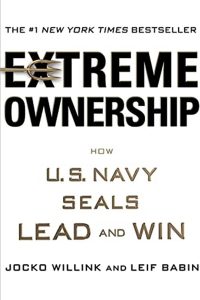
That’s a good one. I love that book. That is a solid one. I like that. Best movie or TV show you have seen in the last few months?
Yellowstone.
You are a Yellowstone fan. Best meal you have had in the last few months?
Dominick’s Steakhouse. I have eaten enough, but it’s good every time.
It’s Dominick’s Steakhouse in Scottsdale, Arizona. We got to note that. Lastly, best experience you have had in the last few months?
It’s my little boy growing up, talking, and having conversations with me. It’s pretty crazy.
It was a pleasure to have you on the show. You are doing amazing things out there. We are going to be keeping an eye out for all the things you do with SeaSpine and whatever other companies you get to represent as the enterprising distributor that you are, and I thank you for being on the show now.
I appreciate you and the opportunity.
—
That was Daniel Tighe. It’s a fascinating story. Daniel is the poster child for someone who knows how to enterprise himself. He’s after results. He does what needs to be done and gets done. It’s great how he highlights the one thing that medical sales professionals should always keep in mind, which is making it very clear that you care about the patient. Your providers, your accounts, and the people that you are calling on need to understand that you truly care about the patient. That will serve your business tremendously.
Maybe you are reading this episode and you are thinking about the career Daniel has created for himself. Maybe you are thinking about the spine or you want to be a spine distributorship one day, or you want to be in medical sales and you don’t know where to start. Regardless of where you are, if this is where you want to be, then you go to EvolveYourSuccess.com. Select Attain Medical Sales Role, and let’s have a conversation with someone over here on our team, and let’s get you to where you want to go.
Our program has a number of professionals and executives in the medical sales space that are all working to get you exactly where you want to be, which is into a medical sales position. It’s a vast industry. From healthcare software, healthcare supplies, healthcare drugs, and healthcare devices, medical sales are enormous, and there are so many fields that you could be an excellent fit for.
Stop wondering, guessing, and wishing things were different. If you have been sending out applications all day, have been trying to talk to people, have even gone on a few interviews, but nothing seems to stick, this is the time that you make a different decision. Visit a simple site called Evolve Your Success. You click a button, you fill out a short application, you have a conversation, and you invite a completely new life into your life. Please make sure you do that if this is something that you want to be a part of. If you are someone that wants to improve their sales performance, again, go to Evolve Your Success, select Improve Sales Performance, and let’s help you get where you want to be.
Here’s the last thing I will say for all of you readers out there, regardless of what you want to do. If you love this show and you love to read about these guests, then I want you to go to Apple Podcasts and write a review on our show. Give us a five-star rating if that’s how you feel. Let it be known that this is something you love and you want to see more. If you are someone that has any requests about what we talk about on the show, don’t hesitate to reach out to us. You can find how to contact us on our website, EvolveYourSuccess.com, and make sure you come back again next time for another episode of the show.
Important Links
- Daniel Tighe
- CrewAthletics.com
- Extreme Ownership
- Attain Medical Sales Role
- Improve Sales Performance
- Apple Podcasts – The Medical Sales Podcast
About Daniel Tighe
 Daniel Tighe has a career spanning 12 years in the medical device/spine industry, exclusively through the distributorship model. He specializes in niche technologies that are built into a commoditized model, delivering a unique value proposition to his clients. Daniel strongly believes in conveying empathy to both the patient and surgeon and strives to understand their perspectives as closely as possible. Real-world patient examples are a top priority for him, and he is mindful of important factors like PPI when creating social media case studies and content.
Daniel Tighe has a career spanning 12 years in the medical device/spine industry, exclusively through the distributorship model. He specializes in niche technologies that are built into a commoditized model, delivering a unique value proposition to his clients. Daniel strongly believes in conveying empathy to both the patient and surgeon and strives to understand their perspectives as closely as possible. Real-world patient examples are a top priority for him, and he is mindful of important factors like PPI when creating social media case studies and content.
Love the show? Subscribe, rate, review, and share!
Join the Medical Sales Podcast Community today:
